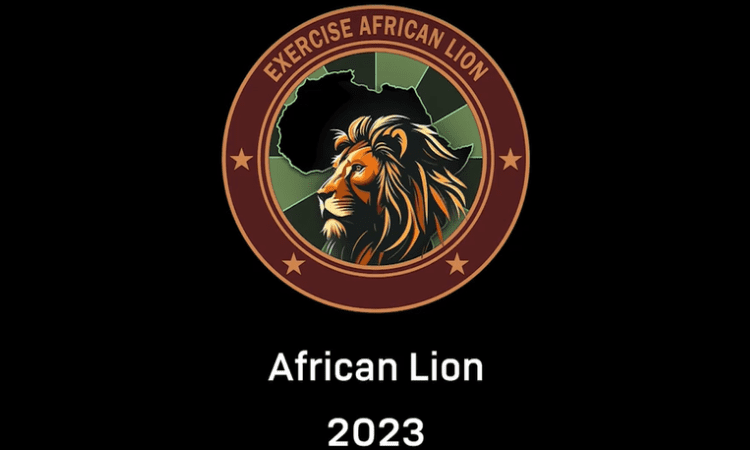Morocco’s Royal Armed Forces (FAR) announced the launch of African Lion 2023, a multinational military training operation co-organized by Morocco and the US from June 5-16.
A ceremony took place today to announce the launch of the 19th edition of the annual military training.
During the ceremony, military representatives presented the theme as well as the different activities programmed as part of the military training, including maritime, air and combined military drills.
18 nations and approximately 8,000 personnel will participate in African Lion 2023, U.S. Africa Command’s largest annual combined, joint exercise that will take place in Ghana, Morocco, Senegal and Tunisia from May 13-June 18, 2023.
“Our collective ability to bring like-minded nations together for an exercise like this is truly impressive,” said Maj. Gen. Joel Tyler, United States Africa Command Chief of Staff. “African Lion is the centerpiece of the AFRICOM exercise strategy, and one of the greatest U.S. exercises across the globe.”
Combined exercises of special forces, airborne operations, as well as exercises to fight against weapons of mass destruction are also on the schedule.
In addition, the African Lion will include military field hospitals providing medical services for the benefit of people living in nearby areas of the training.
The military training will take place in seven regions across Morocco, including Agadir, Tan-Tan, Tiznit, Kenitra, Benguerir, Tifnit, and Mahbes in southern Morocco.
The 2022 annual training also included Mahbes, an inclusion that reflected the US’ position in supporting Morocco’s territorial integrity and sovereignty over its southern provinces in Western Sahara.
Prior to the exercise, military officials met several times in different host nations to plan the military drills.
In October 2022, Head of US Africa Command (AFRICOM) US Marine Corps General Michael Langley visited Morocco to express his satisfaction with the US-Morocco military cooperation.
Langley met with several senior military officials, including Morocco’s General Belkhir El Farouk, Inspector General of the Moroccan Armed Forces, and Abdellatif Loudiyi, Minister Delegate for the National Defense Administration.
Military cooperation between the US and Morocco is “built on deep, historic ties” that date back to the “very founding of the United States,” Langley said.
The military drills come following many hostile manoeuvres and lobbying attempts against Morocco’s hosting rights of the African Lion.
In July, the now-retired Republican Senator James Inhofe said that he requested the search for alternative locations for the military exercise.
Inhofe is one of the most vocal pro-Polisario voices in Washington.
In response to the attempts, several military officials stressed the impossibility of replacing Morocco with a different host.
Former commander of US A AFICON US General Stephen J Townsend said that it will be difficult to find another host for the African Lion as fantastic as Morocco.
“They have a tremendous capacity to do it,” General Townsend said of Morocco, describing the country’s military capacity as “very high,” noting that the North African country also has the “infrastructure, the training rangers, all of that. They are fantastic hosts.”
AL23 provides an opportunity to conduct realistic, dynamic and collaborative readiness training in an austere environment that intersects multiple geographic and functional combatant commands including U.S. Africa Command, U.S. European Command, and U.S. Central Command; as well as strategic maritime choke points and global shipping lanes.
This year’s exercise features multiple combined arms live fire exercises; a maritime exercise; an air exercise with U.S. C-130J Super Hercules, KC-135 Stratotanker, F-16 Fighting Falcons and bomber aircraft; a joint forcible entry with paratroopers into a field training exercise; two chemical, biological, radiological, nuclear response exercises; and three humanitarian civic assistance program events.
SETAF-AF establishes the exercise’s combined joint task force headquarters, integrating AFRICOM components and international partners to provide mission command across the training enterprise. U.S. participants come from across the joint force including the Reserves and National Guard.
U.S. Africa Command-sponsored exercises bolster partnerships between African, U.S. and other international militaries, increasing interoperability during crises and operations to increase security and stability in the region. Exercise African Lion strengthens shared defence capabilities and cooperation to counter transnational threats and violent extremist organizations.”


